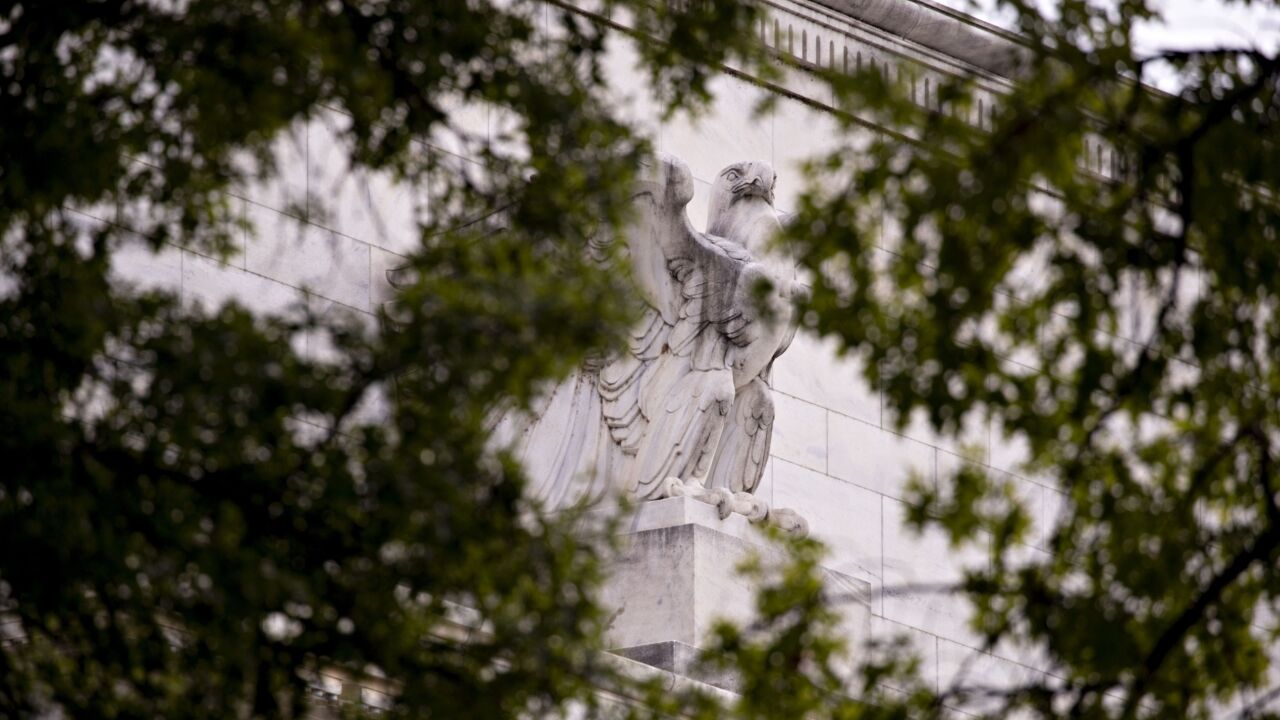-
Federal Reserve Vice Chair for Supervision Michelle Bowman said in comments Wednesday that the central bank plans to publish its Basel III endgame capital proposal for public comment before the end of March.
February 18 -
The Federal Reserve Friday issued a set of proposed changes to its stress testing program for the largest banks that would disclose the central bank's back-end stress testing models, a move that the Fed had long opposed out of fear of making the tests easier for banks to pass.
October 24 -
Federal Reserve Vice Chair for Supervision Michelle Bowman said in a speech Tuesday that the central bank would unveil proposed revisions to its stress testing regime "in the next week or so."
October 14 -
Senate Banking Committee ranking member Elizabeth Warren, D-Mass., led a group of congressional Democrats in a letter to bank regulators telling them that loosening capital rules wouldn't improve the Treasury market's functioning.
September 29 -
The ranking Democrat on the Senate Banking Committee said growing uncertainty and risks in the financial system mean the central bank should increase the countercyclical capital buffer for the nation's largest lenders.
August 8 -
The largest U.S. banks took less of a capital hit under the Federal Reserve's hypothetical stress scenario than they did last year, but averaging the two sets of results could impact next year's regulatory requirements.
June 27 -
As the Federal Reserve considers changes to the supplemental leverage ratio, Fed Board Chair Jerome Powell said that effort is one piece of a broader deregulation package that will also address the Basel III capital rules.
June 25 -
Federal Reserve Chair Jerome Powell testified in the House Tuesday on the heels of yet another pointed social media post from President Donald Trump. But House Republicans largely avoided landing political blows against the central bank chair.
June 24 -
The past two Federal Reserve vice chairs for supervision failed to implement the final installment of the Basel III capital framework. Newly installed Vice Chair for Supervision Michelle Bowman is taking a new approach to the thorny question of bank capital.
June 11 -
The Federal Deposit Insurance Corp. has sent a draft proposal to revise the supplemental leverage ratio to the Office of Information and Regulatory Affairs as a first step toward revising the leverage rule.
June 9 -
Acting Comptroller of the Currency Rodney Hood signals rollback of key safeguards like the supplemental leverage ratio, aligning with administration's push to ease bank capital demands and spur credit.
June 3 -
The new chair of the Basel Committee on Banking Supervision called for member nations to finish the job of implementing post-financial crisis regulations. He also warned them not to put economic goals over safety considerations.
October 23 -
The Federal Reserve finalized its capital requirements for large banks Wednesday based on June's stress test outcomes.
August 28 -
The Federal Reserve attributes the uptick in simulated losses in this year's stress test examination to heightened risks on bank balance sheets and higher expense levels. Credit cards and corporate lending were top areas of concern for the central bank.
June 26 -
The mortgage giants will have to meet benchmarks for covering cash flow needs during stressed periods. The FHFA views the requirements as a prerequisite to the companies exiting conservatorship.
July 31 -
In a letter to Director Mark Calabria, 17 organizations requested an additional 60 days to weigh in on the proposal meant to strengthen Fannie Mae and Freddie Mac's balance sheets post-conservatorship.
July 1 -
Chris Dodd and Barney Frank said the legislation — nearing its 10th anniversary — put banks in position to be a stabilizing force during the coronavirus crisis.
June 30 -
Some observers wonder if proposed regulatory targets for Fannie Mae and Freddie Mac will stoke concerns about low shareholder returns. But others suggest those fears are unfounded.
May 25 -
Measures that delay the Current Expected Credit Losses standard and reduce a community bank capital ratio are temporary, but the industry now sees an opening to argue that they should be permanent.
April 7 -
The OCC and FDIC are holding off on easing debt limits in response to the coronavirus pandemic, leaving billions of dollars locked up at banking subsidiaries that could be used for lending amid the deepening economic crisis.
April 7



















